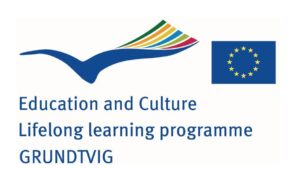

Gardening Techniques in Europe (GATE)
This is an interdisciplinary project focused primarily on gardening training, specifically teaching gardening techniques to the elderly. These training sessions and lessons provide participants with a variety of traditional and modern gardening methods, styles, techniques, and guidance for different purposes, such as growing flowers, vegetables, and herbs. The two partners have created a network to foster new learning opportunities in this area. In this intervention model, the trainees in turn act as trainers for other participants, facilitating knowledge transfer and continuity of activities.
The target group is mainly composed of people over 50 years of age, people in a situation of social exclusion and/or living in socially disadvantaged regions, unemployed people, and people with disabilities. Research on gardening methods, styles, and techniques is developed throughout the project and collected in PowerPoint presentations, electronic garden albums, videos, brochures, and other dissemination materials.
The mobility component allows for the practical application of the knowledge acquired during the training courses while also favouring cultural and professional exchange among participants. Dissemination activities are essential, and the organisations involved are actively working to attract new participants.
The objectives of this project are:
- To improve the quality and accessibility of mobility opportunities in Europe for people involved in adult education.
- To expand cooperation between organisations involved in adult education at the European level.
- To offer alternative educational opportunities to people from vulnerable social groups—in particular the elderly and those who have left the education system without basic qualifications.
- Facilitate the development and transfer of innovative practices in adult education among participating countries.
- Support the development of innovative ICT-based content, services, pedagogies, and practices for lifelong learning.
- Improve pedagogical approaches and management in educational organisations.
Partners

SYLLOGOS EKPAIDEFSIS KAI ANAPTIXIS ATOMON ME IDIKES ANGKES
Association for Education and Development of Disabled People (Greece) offers courses and support programs for people with disabilities in Kavala. Their aim is to provide skills, psychological support and employment opportunities to improve the quality of life of people with disabilities in the community.
